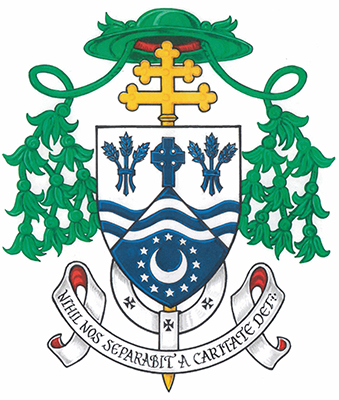
In response to questions regarding Pastoral care in the case of Euthanasia or Assisted Suicide, below is a statement from Archbishop Dunn

Pastoral Care of Those Seeking Euthanasia and Assisted Suicide
(also known as Medical Assistance in Dying)
July 20, 2022
In 2020, the Congregation for the Doctrine of the Faith issued a letter, Samaritanus bonus, on the care of persons in the critical and terminal phases of life. It noted that euthanasia is a crime against human life because, in this act, one chooses directly to cause the death of another innocent human being and in giving assistance in suicide, one contributes to the death of another. While requests for euthanasia and assisted suicide may rise from anguish and despair, these acts of killing must always be rejected. Such actions are never a real service to the patient.
The factors that largely determine requests for euthanasia and assisted suicide are unmanaged pain, and the loss of human and theological hope, provoked by the often inadequate psychological and spiritual human assistance provided by those who care for the sick. These factors are almost always a case of an anguished plea for help and love. The response must include care needs, pain relief, and affective and spiritual needs, all of which are included in palliative care.
Helping the Christian to experience this moment of death with spiritual assistance is a supreme act of charity. The Church is called to accompany spiritually the faithful in all situations, offering them the “healing resources” of prayer and the sacraments. This involves an ongoing relationship of care and compassion for the patient as well as the family.
“The pastoral accompaniment of those who expressly ask for euthanasia or assisted suicide today presents a singular moment when a reaffirmation of the teaching of the Church is necessary. With respect to the Sacrament of Penance and Reconciliation, the confessor must be assured of the presence of the true contrition necessary for the validity of absolution which consists in ‘sorrow of mind and a detestation for sin committed, with the purpose of not sinning for the future’. In this situation, we find ourselves before a person who, whatever their subjective dispositions may be, has decided upon a gravely immoral act and willingly persists in this decision. Such a state involves a manifest absence of the proper disposition for the reception of the Sacraments of Penance, with absolution, and Anointing, with Viaticum. Such a penitent can receive these sacraments only when the minister discerns his or her readiness to take concrete steps that indicate he or she has modified their decision in this regard” (Samaritanus bonus, V. 11).
While the person may not receive the Sacraments of Penance, with absolution, and Anointing, with Viaticum, the person may receive a funeral service consisting of a Liturgy of the Word and the person may be buried in the cemetery. Ongoing pastoral care for the family is very important.
✝Brian Joseph Dunn
Archbishop of Halifax-Yarmouth

Soins pastoraux aux personnes qui demandent l'euthanasie et suicide assisté
(Également connue sous le nom l’aide médicale à mourir)
20 juillet 2022
En 2020, la Congrégation pour la Doctrine de la Foi a publié une lettre, Samaritanus bonus, sur le soin des personnes en phase critique et terminale de la vie. Elle note que l'euthanasie constitue un crime contre la vie humaine car, dans cet acte, on choisit directement de causer la mort d'un autre être humain innocent et, en apportant une aide au suicide, on contribue à la mort d'un autre. Si les demandes d'euthanasie et de suicide assisté peuvent naître de l'angoisse et du désespoir, ces actes meurtriers doivent toujours être rejetés. De tels actes ne constituent jamais un véritable service rendu au patient.
Les facteurs qui déterminent en grande partie les demandes d'euthanasie et de suicide assisté sont la douleur non gérée et la perte de l'espérance humaine et théologique, provoquée par l'assistance humaine psychologique et spirituelle souvent inadéquate fournie par ceux qui prennent soin des malades. Il s'agit presque toujours d'un appel angoissé à l'aide et à l'amour. La réponse doit inclure les besoins de soins, le soulagement de la douleur et les besoins affectifs et spirituels, qui sont tous inclus dans les soins palliatifs.
Aider le chrétien à vivre ce moment de la mort par une assistance spirituelle est un acte suprême de charité. L'Église est appelée à accompagner spirituellement les fidèles dans toutes les situations, en leur offrant les "ressources de guérison" de la prière et des sacrements. Cela implique une relation continue d'attention et de compassion pour le patient ainsi que pour la famille.
« Un cas très particulier dans lequel il est aujourd'hui nécessaire de réaffirmer l'enseignement de l'Église est l'accompagnement pastoral de celui qui a expressément demandé l'euthanasie ou le suicide assisté. En ce qui concerne le sacrement de la réconciliation, le confesseur doit veiller à ce qu'il y ait une contrition, laquelle est nécessaire pour la validité de l'absolution et consiste en « une douleur de l’âme et une détestation du péché commis, avec le propos de ne pas pécher à l’avenir ». Dans notre cas, nous avons affaire à une personne qui, au-delà de ses dispositions subjectives, a fait le choix d'un acte gravement immoral et y persévère librement. Il s'agit d'une non-disposition manifeste à la réception des sacrements de la Pénitence, avec l'absolution, et de l’Onction des malades, ainsi que du Viatique. Le pénitent pourra recevoir ces sacrements lorsque sa volonté de prendre des mesures concrètes permettra au ministre de conclure qu’il a modifié sa décision. (Samaritanus bonus, V. 11)
Bien que la personne ne puisse pas recevoir les sacrements de la pénitence, avec absolution, et de l'onction, avec viatique, elle peut recevoir un service funèbre consistant en une liturgie de la parole et elle peut être enterrée dans le cimetière. Un suivi pastoral continu de la famille est très important.
✝ Brian Joseph Dunn
Archevêque d’Halifax-Yarmouth

